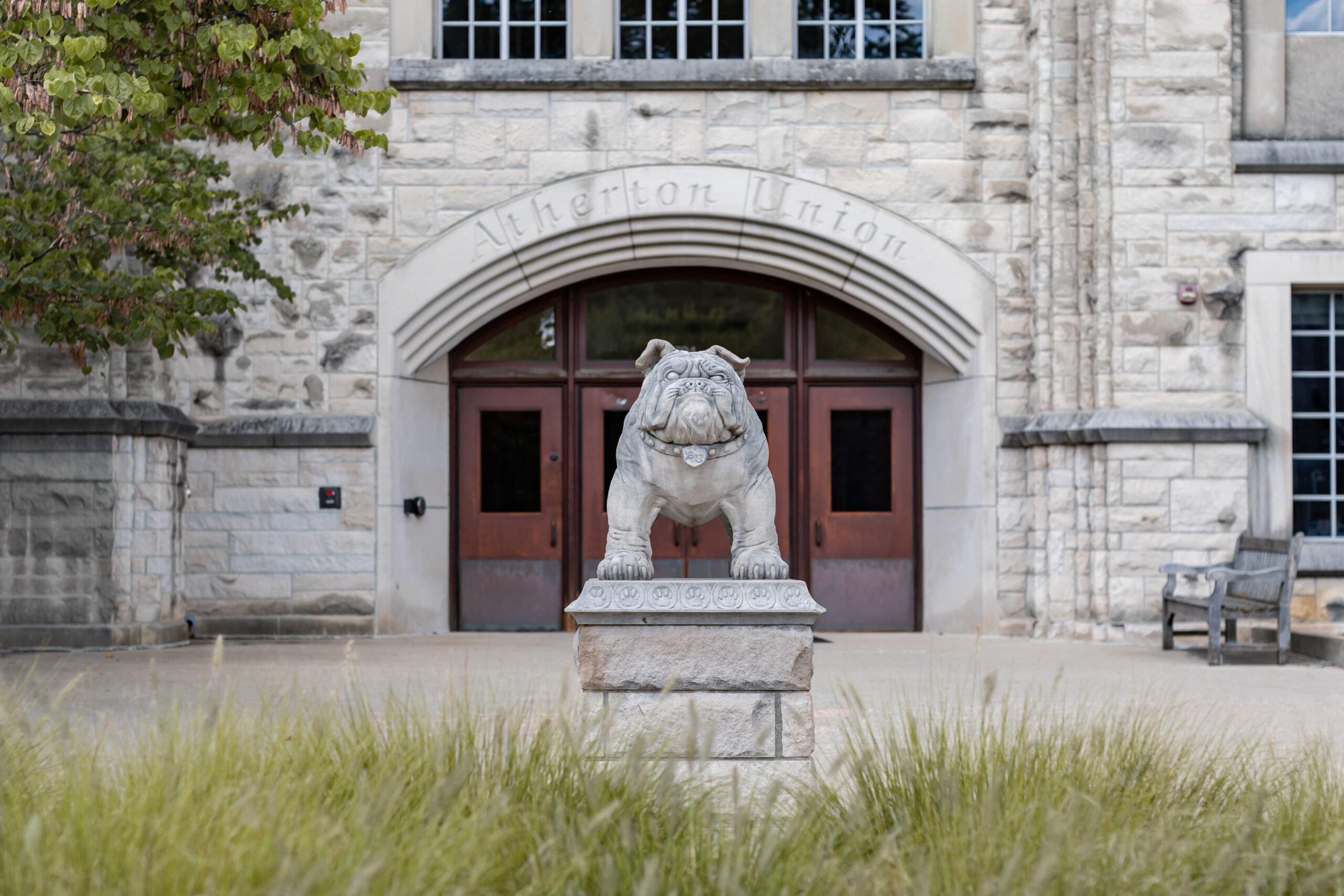Collegian file photo.
LEAH OLLIE | EDITOR-IN-CHIEF | lollie@butler.edu
Amid federal and state crackdowns on diversity, equity and inclusion (DEI) initiatives on college campuses across the nation, the Office of Institutional Equity (OIE) recently reported “increased reports of incidents of biased behavior, language, and actions by various members within the Butler community.”
In an email to the campus community shared March 3, Khalilah Marbury, vice president for DEI & student affairs, announced this increase, alongside lists of resources for bias reporting and applicable policies surrounding bias on campus. Marbury also highlighted Butler’s Freedom of Expression & Inclusivity Statement, created and endorsed by the Faculty Senate in the Fall 2024 semester.
Any incidents of bias formally reported through the Qualtrics form available on the OIE website are reviewed and addressed individually by staff, including future communications with the reporter and any individuals identified in the report.
Following the recent departure of former Azure Swinford, director of the office of institutional equity & title IX coordinator, Interim Title IX/Special Populations Coordinator Lauren Smith and Title IX Investigator Judie Conley join Marbury in reviewing each individual bias report.
Marbury shared with The Butler Collegian that OIE has not conducted a quantitative analysis of bias reports received in the last academic year, and thus cannot report what constitutes “increased reports” as shared in her March 3 email. To address student voices sharing their thoughts regarding belonging on campus, Marbury referred to her address at a Founder’s Week forum in which she shared results of campus climate surveys administered over the last two academic years.
Marbury also clarified the function of the bias reporting system, as well as the scope of potential actions available as reports are reviewed by OIE staff.
“Our first action is to communicate back to the individual who submitted the claim so that we have an understanding of what took place if they want to talk further,” Marbury said. “Sometimes people just want to report it, and that’s it. Other times, people want some sort of opportunity to discuss it further. They might need some connection to some resources …They [might] want a conversation with the person who they feel disparaged [them].”
OIE responses to individual bias reports may vary but often determine if any action reports violate university policy through staff review. Violations are referred to the aforementioned respective punitive bodies as required, but reports found not to contain policy violations often offer opportunities for educational resources and awareness as resolution.
Though individual cases may be elevated to the attention of institutional partners such as the Office of the Dean of Students or Butler’s Human Resources department, Marbury emphasized that OIE does not disperse punitive decisions or punishments based upon bias report submissions.
“One of the first things I want to make sure is clear is that [OIE] is not a punitive office,” Marbury said. “It is a space in place — particularly related to bias incidents — for awareness building, education and what we kind of call ‘teachable moments’.”.
Marbury’s email also included the full text of Butler’s Freedom of Expression and Inclusivity Statement. Also available for viewing on the Faculty Senate website, this statement functions as a commitment to Butler’s values and not as university policy to be enforced or applied in punitive contexts.
“Butler University, founded on ideals of equity and academic excellence, is committed to fostering a vibrant academic community where freedom of speech and inclusion are fundamental principles that guide our collective endeavors,” The introduction of the statement reads. “We believe that robust intellectual exchange, respectful dialogue, and diverse perspectives are essential to the pursuit of knowledge and understanding. As such, we uphold the following principles: Inclusion … Freedom of expression … Navigating Complexity”.
Andrew Schmelz, assistant professor of pharmacy practice and vice chair of Faculty Senate, shared that faculty developed the statement’s contents after Provost Brooke Barnett suggested the idea in the summer of 2024.
“A lot of people gave a significant amount of thought to the contents of this statement, and … we were very intentional about sharing it with people who had a stake in what this statement said as well as gathering input from as many faculty as we were able to,” Schmelz said. “This statement was developed specifically for faculty, [as we think] ‘How do we balance these things?’ But I feel like it’s applicable to other members of our community as well.”
As OIE works to address bias reports — which can be submitted by students, faculty or staff members — the campus community can utilize resources provided by the Division of DEI to share awareness and education regarding bias.
Marbury’s email referenced the DEI Learning & Professional Development page on Butler’s website, which provides links to instructional content and guides for DEI learning in both educational and professional environments.
Campus community members seeking to report incidents of bias on campus can do so on the OIE website.



